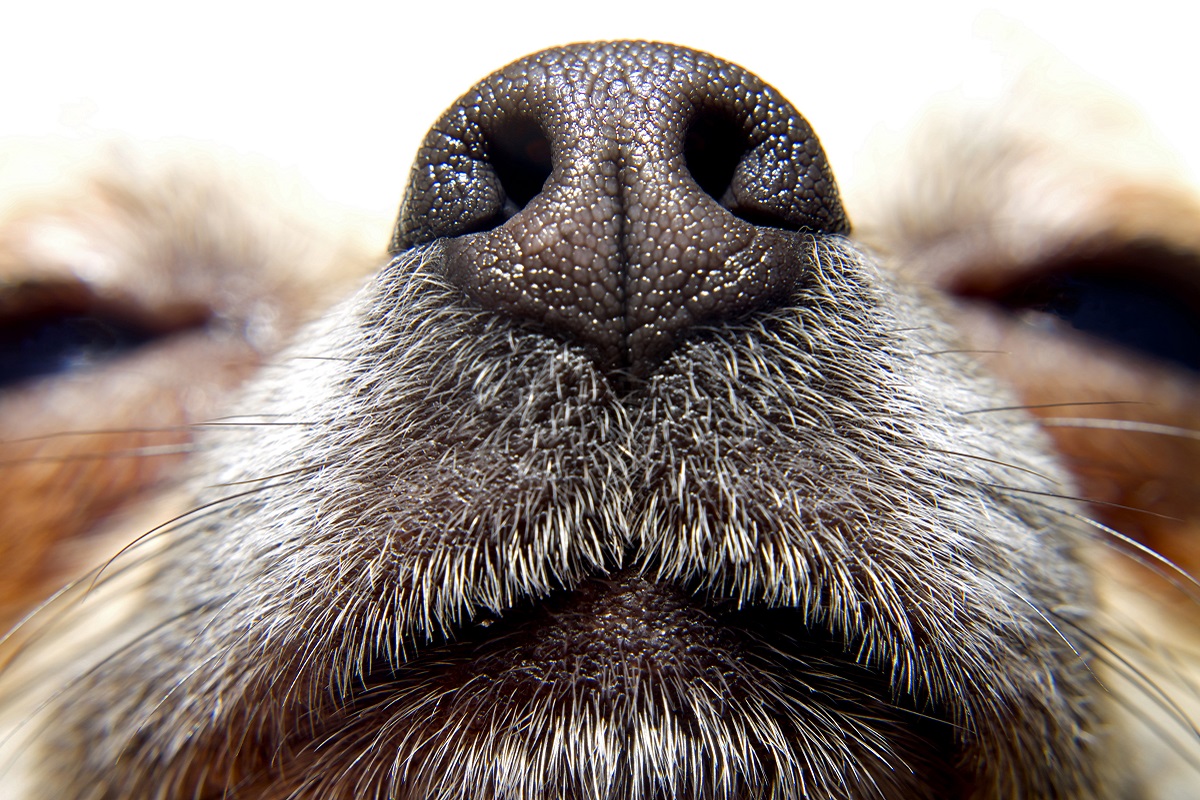Dogs can smell stress from their human’s sweat and breath, a new study by Queen’s University Belfast has found.
The study involved four dogs from Belfast – Treo, Fingal, Scot, and Winnie – and 36 people. The human participants had their sweat and breath collected before and after they did a difficult maths problem.
The four dogs were then taught how to search a scent line-up and alert researchers to the correct sample, and in every test session each dog was given one person’s relaxed and stressed samples taken just four minutes apart – all dogs were able to correctly identify each person’s stress sample.
Clara Wilson, a PhD student in the School of Psychology at Queen’s, said the findings show that we, as humans, produce different smells through our sweat and breath when we are stressed and dogs can tell this apart from our smell when relaxed, even if it is someone they do not know.
“The research highlights that dogs do not need visual or audio cues to pick up on human stress. This is the first study of its kind and it provides evidence that dogs can smell stress from breath and sweat alone, which could be useful when training service dogs and therapy dogs.
“It also helps to shed more light on the human-dog relationship and adds to our understanding of how dogs may interpret and interact with human psychological states.”
Helen Parks, the owner of Treo, a two-year old Cocker Spaniel, which took part in the study, said as the owner of a dog that thrives on sniffing, she was delighted and curious to see Treo take part.
“We couldn’t wait to hear the results each week when we collected him. He was always so excited to see the researchers at Queen’s and could find his own way to the laboratory.
“The study made us more aware of a dog’s ability to use their nose to ‘see’ the world. We believe this study really developed Treo’s ability to sense a change in emotion at home. The study reinforced for us that dogs are highly sensitive and intuitive animals and there is immense value in using what they do best – sniffing!”
The research findings have been published in PLOS ONE. The study was carried out by Clara Wilson (PhD researcher) and Kerry Campbell (MSc student) in the School of Psychology. They were supervised by Catherine Reeve, with support on collecting the human physiological measures from Zachary Petzel.
To stay up-to-date on the latest industry headlines, sign up to the Pet Industry News e-newsletter.

